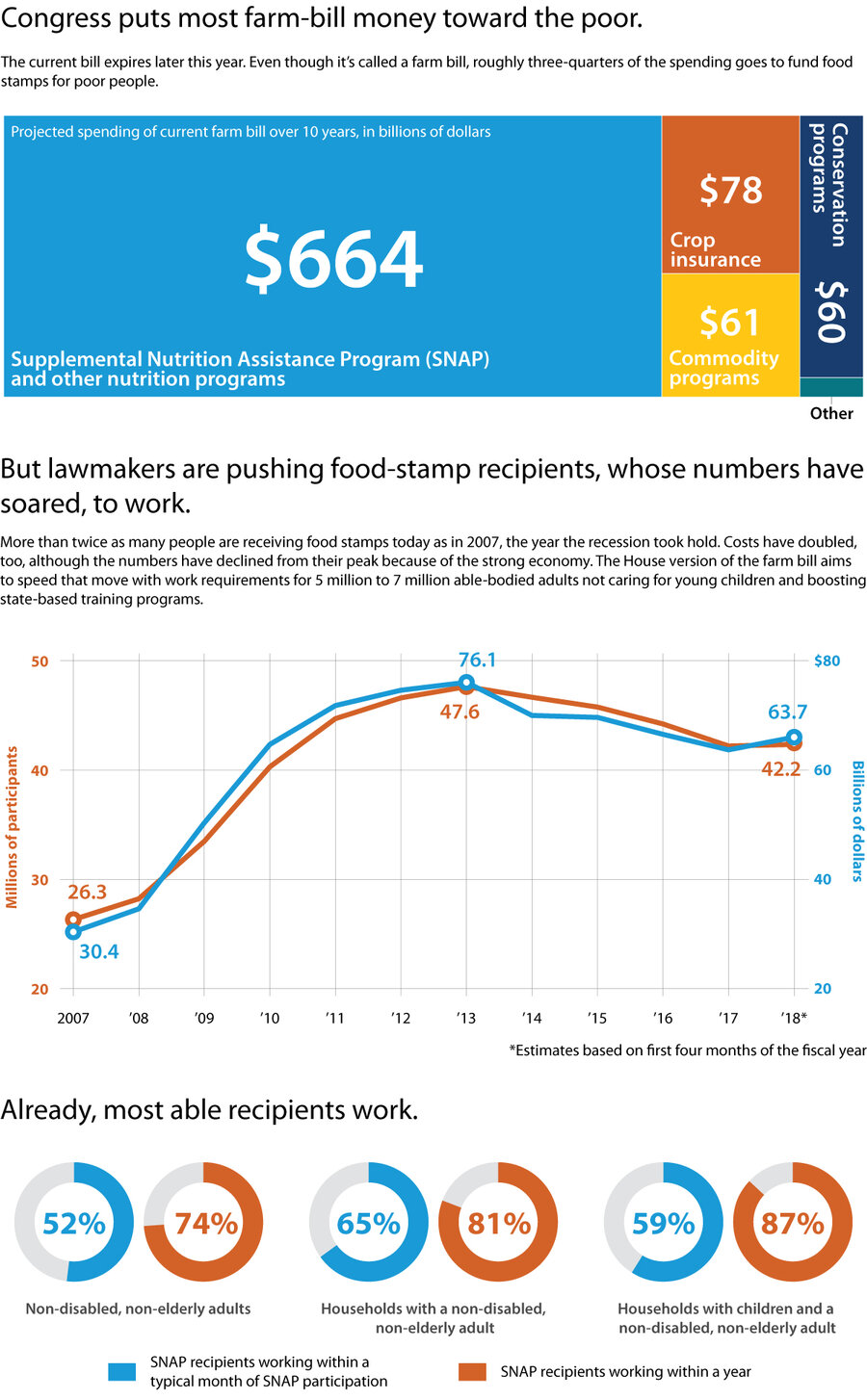A farm-bill flap over the terms, and reach, of food assistance
The farm bill, a necessarily bipartisan exercise every four years or so, doesn’t usually set off major fireworks in Congress. Farm Belt Republicans team up with urban Democrats to push through legislation that includes subsidies for farmers and food assistance for poor people. But this year, House Republicans are championing major reforms for food stamps, and Democrats are boiling. The GOP concern is that spending on the program – officially the Supplemental Nutrition Assistance Program, or SNAP – soared during the Great Recession and isn’t yet close to returning to pre-recession levels. The nonpartisan Congressional Budget Office thinks participation will fall over the next decade, but House Republicans want to reduce the ranks more quickly by tightening eligibility and putting 5 million or so able SNAP recipients into jobs or job training. That’s causing House Democrats to reject the package. Leaders of the Senate Agriculture Committee are less likely to push for major SNAP changes. So the final bill might be less radical than the current political conflagration might signal.
American Farm Bureau Federation, US Department of Agriculture, Center on Budget and Policy Priorities, Congressional Budget Office
Why We Wrote This
A historically high number of Americans rely on federal food assistance. Supporters say food stamps offer compassion to the most needy. Critics say that with the US unemployment rate at its lowest level in 18 years, a higher form of compassion is a job.








